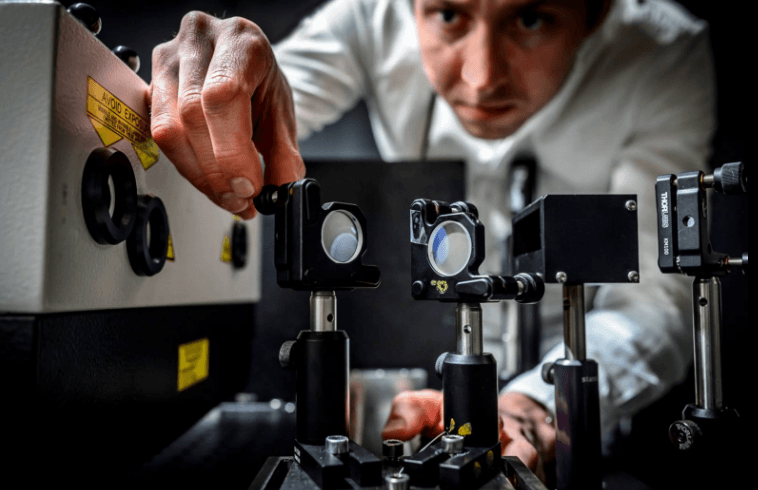The Fastest Camera Ever has just been Created by Scientists

A new ultra-fast camera, named T-CUP, is able to capture up to ten trillion frames per second, which makes it the fastest camera in the world. Compared to conventional high-speed cameras, T-CUP is thousands of times faster and allows us to see extremely rapid processes is slow motion, even the movement of the light. This device will make it possible to record some phenomena that the scientists were unable to capture using current cameras, which are not speedy and sensitive enough.
How was the camera developed?
The newly developed camera was based on the compressed ultra-fast photography (CUP), which is a dynamic imaging technique that is able to capture around 100 billion frames per second. This type of camera has its limitations, as it cannot integrate ultra-short pulses in femtosecond range. The scientists managed to overcome this by constructing a femtosecond streak camera, which uses a data acquisition system, known for its role in tomography.
How does it work?
According to Lihong Wang, the Bren Professor of Medical Engineering and Electrical Engineering at Caltech, the researchers were aware of the fact that “by using only a femtosecond streak camera, the image quality would be limited. So to improve this, we added another camera that acquires a static image. Combined with the image acquired by the femtosecond streak camera, we can use what is called a Radon transformation to obtain high-quality images while recording ten trillion frames per second.”
T-CUP allows us to observe light in slow motion
The world record for imaging speed was set by T-CUP through capturing the temporal focusing of a single femtosecond laser pulse in real time. The camera recorded this process in 25 frames taken in a period of 400 femtoseconds, making it possible to see in great detail the shape, angle of inclination and intensity of the light pulse.
0 comments